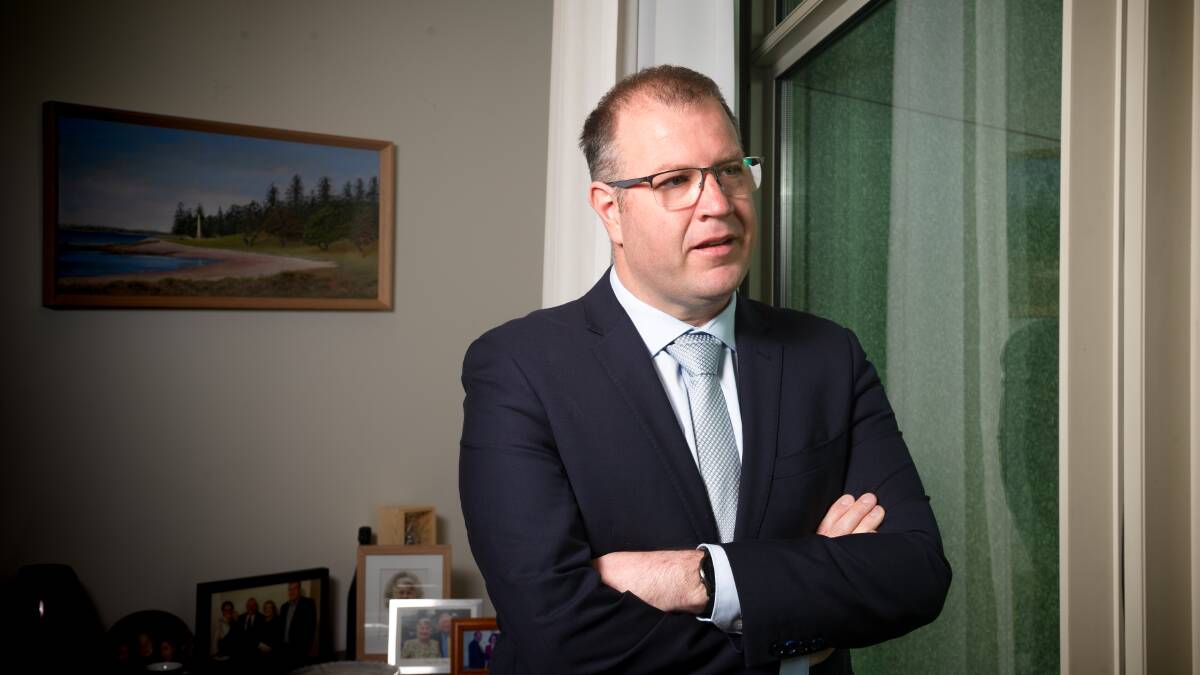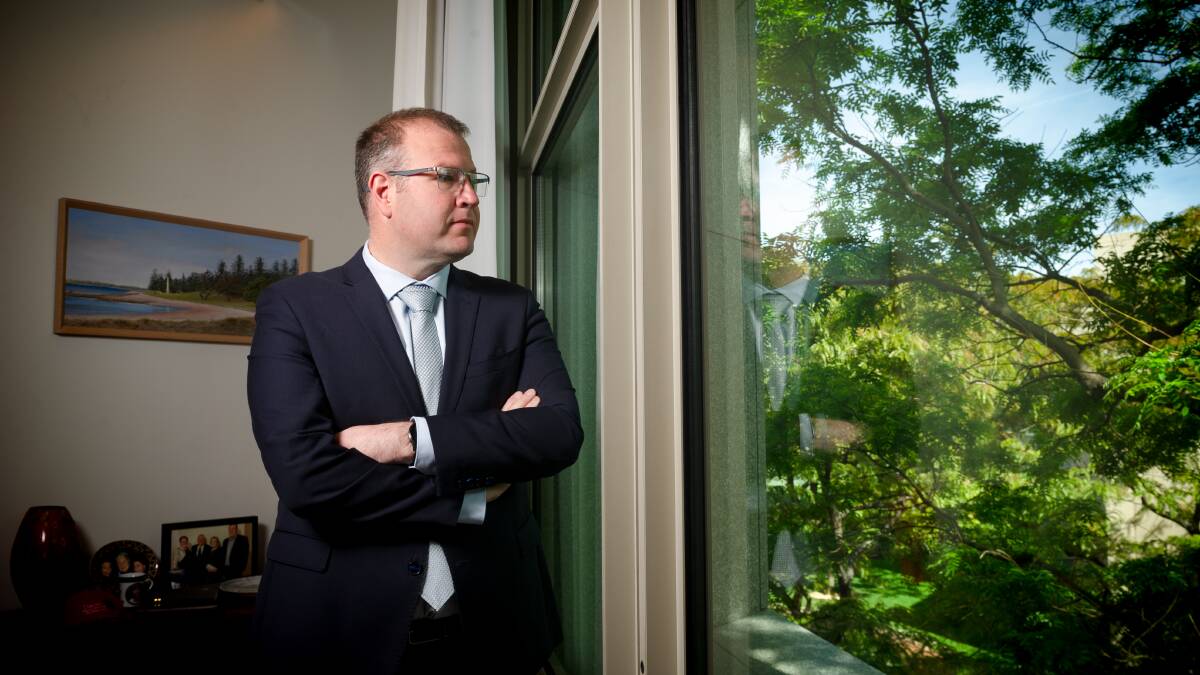
Ministers get a rare double-sided view of the public service. Ben Morton is no different, seeing both its inner workings in Canberra, and how it's understood outside the capital.
Subscribe now for unlimited access.
$0/
(min cost $0)
or signup to continue reading
So it's no small thing when the Public Service Minister explains why he enjoys the portfolio: "I like the challenge of dealing with ... how the public service can be somewhat misunderstood in the wider Australian community outside of Canberra."
They aren't words you would usually expect from a Coalition minister, but they go some way to explaining how Mr Morton has involved himself in the public service's machinery more than most recent MPs in his role.
He has views on how the public service can better operate. More importantly, he is building a record of acting on them, bringing changes in Coalition policy that might not have been expected even three years ago.
One of his first decisions as assistant minister for the public service was to freeze public service wage rises in the early stages of the pandemic. It was a choice made through the lens of that double-sided view of the bureaucracy, anticipating how the broader public might have viewed public sector pay increases while private sector industries were in freefall.
Mr Morton also made an early change to the Coalition's industrial policy, hitching public servant wages to the private sector's. It was a further, albeit slight, softening of the bargaining rules first imposed by the Abbott government.

Amid all the noise in the political debate raging about the public service, it's been actions that have spoken loudest on the government's views. Sometimes, they contradict the political arguments coming forward, and show a slow but sure shift in Coalition thinking about the public service.
READ MORE:
Mr Morton, like other Coalition ministers, defends the public service's use of contractors. Government decisions suggest it's slowly beginning to rethink their numbers. Last May's budget contained a quiet, reluctant admission that the growing reliance on contractors needed winding back - in Veterans' Affairs and Aged Care portfolios at least.
The public service's new streams for employees pursuing digital and data careers also signal a shift in views on contracting. They're a bid to rebuild internal capability in those areas after years of voluminous outsourcing on IT projects.
The government has started an Australian Public Service Academy, an ambitious exercise also geared towards building skills inside government agencies.
These changes aren't even close to achieving the full scope of reforms recommended in the major Thodey review of the public service in 2019.
They are still a start, of sorts, and might indicate more reform to come. Mr Morton wants to see junior and middle-ranking public servants more involved in improving how their agencies work. That's an important signal to the notoriously hierarchical public service. Mr Morton points to silo-breaking initiatives like the professional streams, and the APS Academy, as the means to that change. The review into the public service's hierarchy system - which could flatten management structures - might be another.
That review is due to land soon, and its recommendations may not be carried out until later next year. By then, the nation might have a different government. Labor is bellicose in its animosity towards contractor spending, and could finally have a chance to match its words with some actions.
Mr Morton might also be running out of time to make his mark in the public service portfolio. Another reason, maybe, to keep up the pace.
Our journalists work hard to provide local, up-to-date news to the community. This is how you can continue to access our trusted content:
- Bookmark canberratimes.com.au
- Download our app
- Make sure you are signed up for our breaking and regular headlines newsletters
- Follow us on Twitter
- Follow us on Instagram


